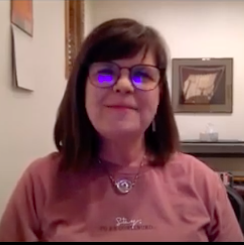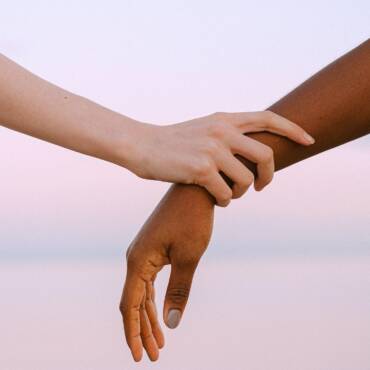The recent uproar regarding Simone Biles’ decision to back out of competing in the Tokyo Olympics has the entire world discussing mental health and the importance (or, for some, unimportance) of taking care of ourselves mentally and emotionally in tandem with our physical health. Imagine being able to not only identify your mental health concerns but being able to work through them without judgment or stigma and then sharing that experience with your partner. For more than two decades, Dr. Spann of the Lesbian Couples Institute has guided lesbian couples back to love through a journey of natural discovery and transparent communication. She’s helped couples on the verge of divorce open up and learn to love again through self-acceptance and honest communication with their partner.

A recent Gallup poll shows that an estimated 18 million Americans identify as lesbian, gay, or bisexual. Of those surveyed, 39% reported having a mental illness in the past year. The Trevor Project’s most recent survey finds 42% of LGBTQ youth ‘seriously considered’ attempting suicide based on nearly 35,000 LGBTQ identifying individuals polled at the end of 2020. In April, the Human Rights Campaign announced that “2021 is slated to become the worst year [since 2015] for LGBTQ State Legislative Attacks as [an] Unprecedented number of States [are] poised to enact a record-shattering number of Anti-LGBTQ measures into law.” These figures and predictions prove just how severe the mental health crisis is for the LGBTQ community. Imagine wanting to get help but finding out that there are only a handful of LGBTQ-identifying therapists in the U.S. that operate solely with a focus on LGBTQ individuals and relationships. No data exists to put an exact number on these specialized therapists, and many straight therapists offer to work with gay couples. While they mean well, not understanding the nuances of a lesbian relationship makes it that much more difficult for lesbian couples who want help to find the right therapist for them.
Dr. Lynda Spann is a frequent contributor to many news sources on the subject of LGBTQ mental health. Following the Olympic uproar regarding mental health, she came up with 11 things we can do to address LGBTQ mental health. Among these, she suggests working diligently to end the stigma and reduce fears at a social and family level in asking for help with mental health issues such as depression, anxiety, PTSD, suicidal feelings, and shame. Also, ensuring that all LGBTQ-phobic bullying, harassment, and hate crimes victims are treated in the same way that a privileged, heteronormative victim would be treated is imperative to ending the mental health crisis in this marginalized community.
If you want to learn more about my work and TLC, please watch my free 30-minute Masterclass here: The 5 Steps My Lesbian Clients Take to Prevent a Breakup, Reconnect, and Build a Thriving Relationship (Without Wasting Years in Therapy). A replay will be available for you to show your partner.
At the end of the masterclass, you’ll have an opportunity to schedule a FREE 45-minute Relationship Breakthrough Session with me.



